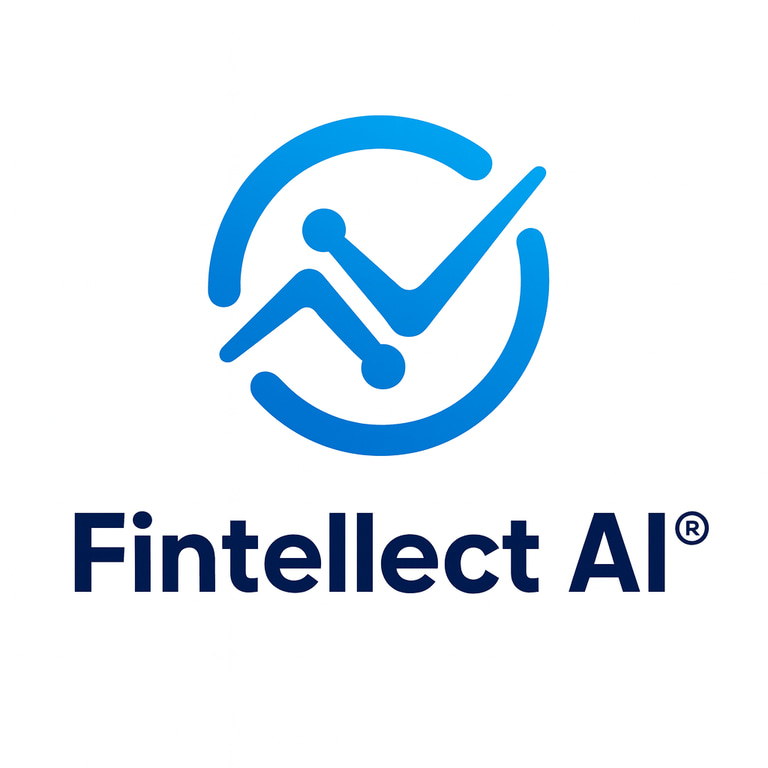The Financial Revolution: What’s next for AI in Finance—and how will the Human–Machine relationship evolve?
Why the future of finance belongs to hybrid thinking and intelligent collaboration
CFO INSIGHTS
Zhivka Nedyalkova
4/1/20254 min read


Looking Ahead, Not Just Within
As we close this five-part series exploring the growing role of artificial intelligence in finance, it becomes clear that AI is not just a tool—it is becoming a collaborative force. We've discussed its power, its key application areas, its advantages over traditional software, and even the fears that come with its adoption. But one question remains: Where do we go from here?
AI is no longer confined to automation or prediction. It is evolving into an active participant in decision-making, strategy, and even ethical oversight. In finance—where precision, trust, and foresight are paramount—this transformation will redefine the way humans and machines work together.
What follows is not a speculative fiction, but a forecast grounded in emerging trends, real technological capabilities, and the voices of industry leaders. Here are six major shifts we can expect over the next decade, each reshaping the future of finance and the evolving partnership between people and intelligent systems.
1. From Assistants to Co-Strategists: AI in Financial Decision-Making
While current AI systems assist with forecasting and anomaly detection, the next generation will actively co-design financial strategies. This goes beyond reactive analysis—AI will simulate multiple scenarios, model long-term impacts, and suggest strategic pivots in real time.
Human-AI Symbiosis:
CFOs won’t just consult AI—they’ll collaborate with it, using its predictive power to test assumptions, manage risk, and personalize financial roadmaps.
Example:
AI-generated scenario plans may simulate regulatory changes or global events on a company’s liquidity position and suggest timely adjustments in debt strategy.
💡 Why it matters:
Strategic agility will depend not just on human insight, but on how intelligently humans interact with self-improving financial models.
2. AI Governance Boards and the Rise of Financial AI Ethics Roles
As AI becomes embedded in financial institutions, the demand for structured oversight and ethical accountability will intensify. Enter the AI Governance Board—a multidisciplinary committee responsible for monitoring bias, model fairness, data usage, and compliance with emerging global standards.
New Roles:
Financial AI Ethics Officer
Algorithm Accountability Analyst
AI Governance Program Manager
Example:
A bank’s governance board could audit its AI credit scoring models quarterly to detect biases or discrepancies in lending outcomes across demographics.
💡 Why it matters:
Trust isn’t a byproduct—it’s engineered. Future-ready financial organizations will institutionalize transparency and ethics through policy, process, and leadership.
3. Continuous Learning Between Machines and Humans
The future of AI in finance isn’t just about machine learning—it’s about mutual learning. As algorithms become more capable of explaining their outputs (via XAI), finance professionals will better understand why AI made a decision. In return, human feedback will further fine-tune the model.
Bi-directional Learning:
Humans teach the AI with corrections and context. The AI teaches humans by surfacing insights and exceptions they may have overlooked.
Example:
An XAI tool flags a suspicious vendor contract. A financial analyst confirms it was actually a legitimate but rare transaction. The AI learns and adapts for the future.
💡 Why it matters:
This loop builds not only efficiency, but resilience. Human–machine interaction will no longer be linear—it will be iterative, dynamic, and reciprocal.
4. Hyper-Personalization of Financial Strategy
As financial data becomes richer and AI models more refined, we will enter an era of personalized financial management at scale—for both businesses and individuals.
For CFOs:
AI will recommend tailored budgeting strategies based on company size, risk appetite, seasonal patterns, and even leadership style.
For SMEs and startups:
Small teams will get enterprise-grade financial forecasting with zero onboarding time, just by uploading raw transactional data into AI platforms.
For consumers:
AI will move beyond savings suggestions and evolve into life-stage financial advisors, aligning personal goals with macroeconomic realities in real time.
💡 Why it matters:
Personalized finance will become the norm—not the luxury. With the help of AI, finance teams can deliver tailored insights at scale without increasing workload or complexity.
5. Cross-Border AI Collaboration in Global Finance
Financial AI will not exist in silos. Interoperability, multilingual learning models, and cross-regulatory intelligence will define the next era of finance.
Example:
An EU-based financial AI platform may adapt its forecasts instantly when U.S. interest rates shift or Chinese import data changes. It will also translate compliance logic across jurisdictions.
Strategic Impact:
Global CFO teams will leverage AI that understands localized tax codes, consumer behavior, and risk exposure—bridging global markets with real-time understanding.
💡 Why it matters:
Globalization demands fluid, adaptive systems. AI will serve as the connective tissue between different economies, policies, and performance metrics.
6. From Human Oversight to Human Partnership
Today’s narrative emphasizes “human-in-the-loop.” Tomorrow’s focus will be human-in-partnership. Oversight will evolve into collaborative accountability—where AI systems suggest and humans validate, not out of distrust, but shared responsibility.
Trust Architecture:
Finance professionals will be trained to work with AI like copilots—questioning its logic, tweaking assumptions, and owning the outcomes.
New Education:
MBA programs, accounting certifications, and financial analyst training will soon include AI fluency, ethics, and system design as core competencies.
💡 Why it matters:
The future belongs to hybrid thinkers—those who combine analytical depth with technological adaptability.
Partnership, Not Replacement
The future of finance isn’t automated—it’s augmented. AI will not replace financial professionals. It will elevate them. It will take over the repetitive, the reactive, and the rules-based—freeing humans to focus on the nuanced, the ethical, the relational.
Yes, some roles will evolve. New ones will emerge. But the core value of finance—making sound decisions in uncertain times—will always rely on human judgment. AI’s role is to enhance that judgment with clarity, speed, and foresight.
What’s next?
This may be the end of our current series, but it’s only the beginning of the conversation. The financial revolution is not coming—it’s already here. The question is not if you’ll adopt AI, but how wisely you’ll do it.
Let’s ensure that in building smarter systems, we don’t forget what makes them meaningful: the people who use them.
